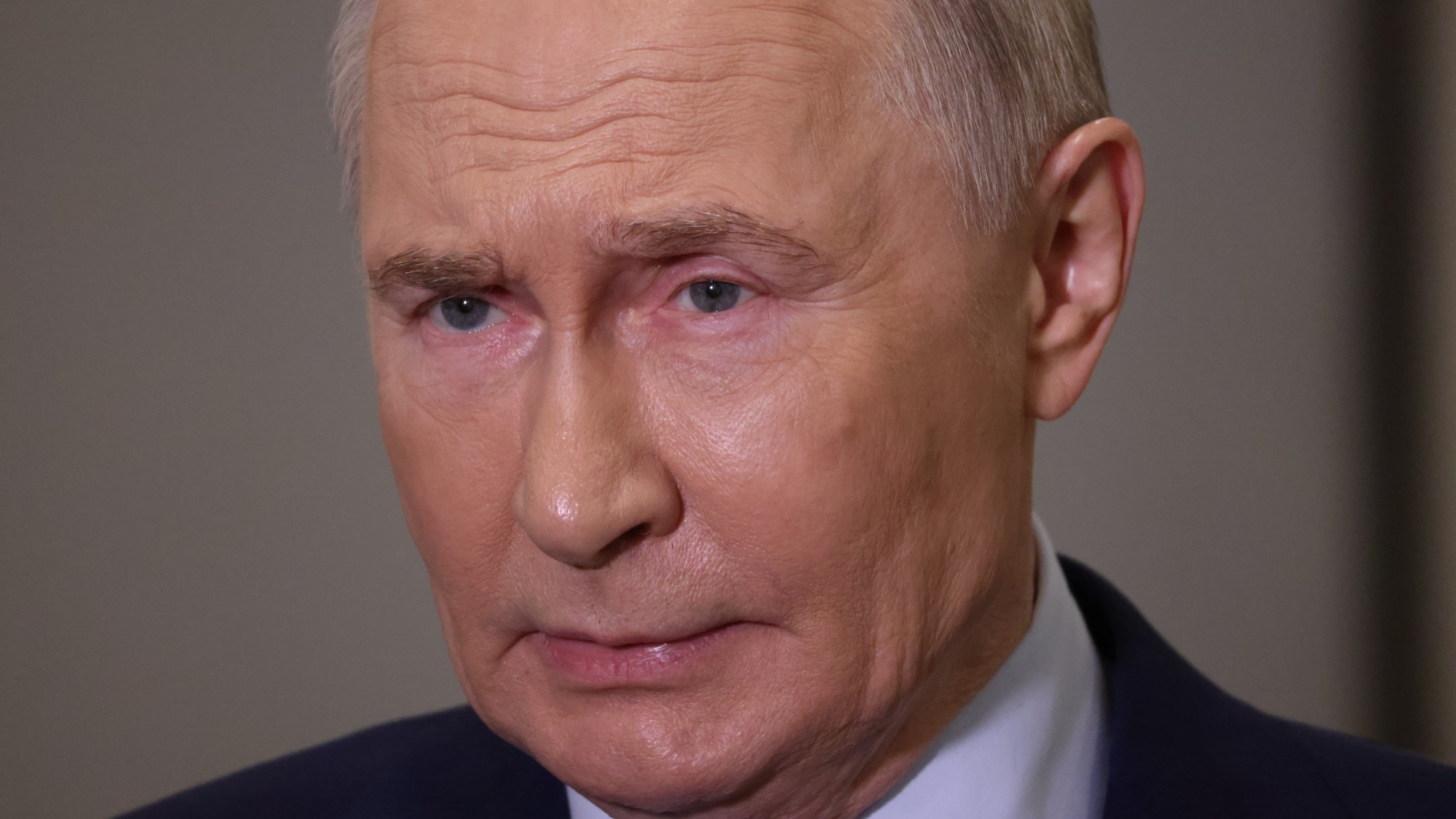Sanctions are reportedly hurting Russia's economy and Ukraine war aims, and new oil caps could hit harder

A free daily email with the biggest news stories of the day – and the best features from TheWeek.com
You are now subscribed
Your newsletter sign-up was successful
Russian President Vladimir Putin claimed for months that Western-led sanctions imposed over his invasion of Ukraine had failed, but even he now seems to recognize the economic fallout on Russia's economy and war effort. "Recent figures show the situation has worsened considerably since the summer when, buoyed by a steady stream of oil and gas revenue, the Russian economy seemed to stabilize," The Washington Post reports, citing economists, Russian business executives, and official Russian statistics showing steep drops in non-oil tax revenue and retail sales.
"All objective indicators show there is a very strong drop in economic activity," Vladimir Milov, an dissident former Russian deputy energy minister, tells the Post. "The spiral is escalating, and there is no way out of this now."
"The Western ban on technology imports is affecting most sectors of the economy, while the Kremlin's forced mobilization of more than 300,000 Russian conscripts to serve in Ukraine, combined with the departure of at least as many abroad fleeing the draft, has dealt a further blow," the Post reports. Putin has also effectively cut natural gas production by limiting exports to Europe.
The Week
Escape your echo chamber. Get the facts behind the news, plus analysis from multiple perspectives.

Sign up for The Week's Free Newsletters
From our morning news briefing to a weekly Good News Newsletter, get the best of The Week delivered directly to your inbox.
From our morning news briefing to a weekly Good News Newsletter, get the best of The Week delivered directly to your inbox.
Moscow's oil revenue could take a further hit when the European Union bans most Russian crude imports and, with the U.S. and other allies, impose price controls on most Russia oil exports by limiting shipping, trading, insuring, and financing Russian oil shipments anywhere that agrees to pay more than a set price. Those combined measures, set to take effect Dec. 5, could deprive Russia of at least $120 million per day in lost revenue, Milov told the Post.
But the damage to Russia will be determined by how low the EU and U.S. set the price cap, how Russia responds, whether OPEC+ cuts crude production, and how soon China's depressed demand for oil recovers after COVID-19 lockdowns, The Wall Street Journal reports. Russia has already cut its oil prices to entice wary buyers.
And U.S. sanctions, combined with Ukraine's "courage and ingenuity," have already made a "real difference" on Russia's ability to conduct its war in Ukraine "in any modern terms," U.S. Ambassador Jim O'Brien, head of the State Department's Office of Sanctions Coordination, told CNN on Sunday. "You see the communications are lacking. Precision weapons. Rapid movement of troops. So it's fighting a different kind of war," with vastly scaled-back ambitions.
A free daily email with the biggest news stories of the day – and the best features from TheWeek.com
Peter has worked as a news and culture writer and editor at The Week since the site's launch in 2008. He covers politics, world affairs, religion and cultural currents. His journalism career began as a copy editor at a financial newswire and has included editorial positions at The New York Times Magazine, Facts on File, and Oregon State University.
-
 Switzerland could vote to cap its population
Switzerland could vote to cap its populationUnder the Radar Swiss People’s Party proposes referendum on radical anti-immigration measure to limit residents to 10 million
-
 Political cartoons for February 15
Political cartoons for February 15Cartoons Sunday's political cartoons include political ventriloquism, Europe in the middle, and more
-
 The broken water companies failing England and Wales
The broken water companies failing England and WalesExplainer With rising bills, deteriorating river health and a lack of investment, regulators face an uphill battle to stabilise the industry
-
 TikTok secures deal to remain in US
TikTok secures deal to remain in USSpeed Read ByteDance will form a US version of the popular video-sharing platform
-
 Unemployment rate ticks up amid fall job losses
Unemployment rate ticks up amid fall job lossesSpeed Read Data released by the Commerce Department indicates ‘one of the weakest American labor markets in years’
-
 US mints final penny after 232-year run
US mints final penny after 232-year runSpeed Read Production of the one-cent coin has ended
-
 Will latest Russian sanctions finally break Putin’s resolve?
Will latest Russian sanctions finally break Putin’s resolve?Today's Big Question New restrictions have been described as a ‘punch to the gut of Moscow’s war economy’
-
 Warner Bros. explores sale amid Paramount bids
Warner Bros. explores sale amid Paramount bidsSpeed Read The media giant, home to HBO and DC Studios, has received interest from multiple buying parties
-
 Gold tops $4K per ounce, signaling financial unease
Gold tops $4K per ounce, signaling financial uneaseSpeed Read Investors are worried about President Donald Trump’s trade war
-
 Electronic Arts to go private in record $55B deal
Electronic Arts to go private in record $55B dealspeed read The video game giant is behind ‘The Sims’ and ‘Madden NFL’
-
 New York court tosses Trump's $500M fraud fine
New York court tosses Trump's $500M fraud fineSpeed Read A divided appeals court threw out a hefty penalty against President Trump for fraudulently inflating his wealth
